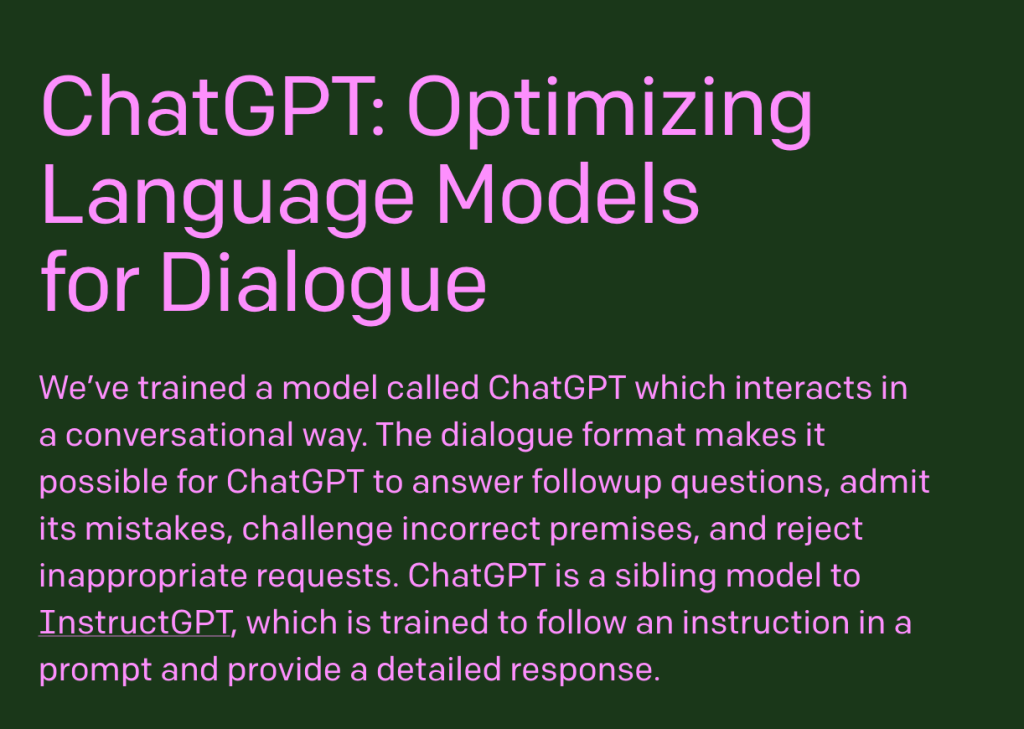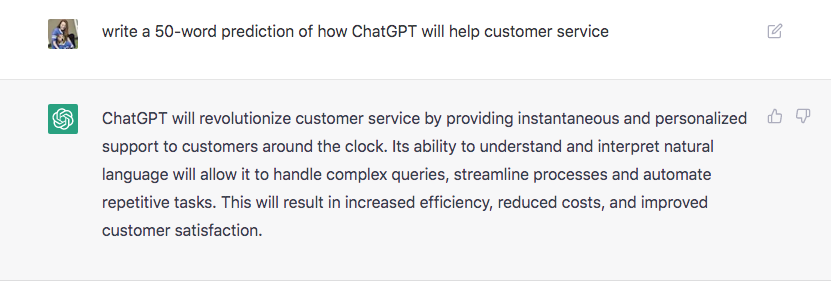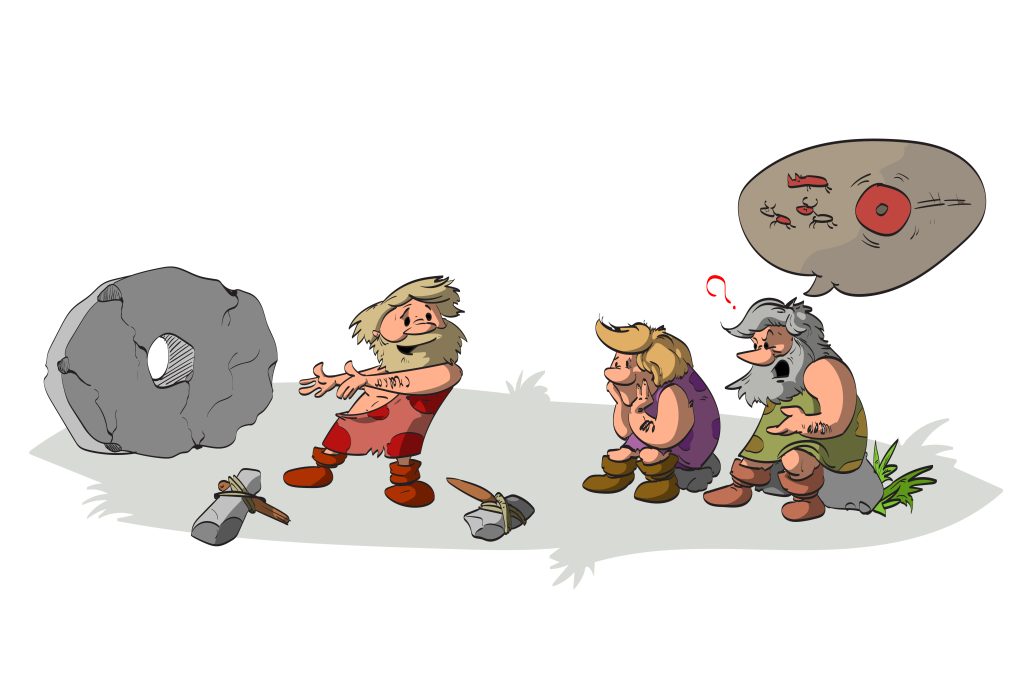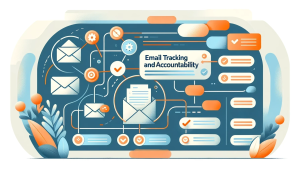Recently, the advances in Artificial Intelligence (AI) development have been all the buzz. Teachers worry about students submitting work created by AI. Employees in various industries wonder about their job safety. And businesses look into further advances in AI in customer service.
Naturally, when something new comes around, people worry. Or maybe they are just too busy to take the time to look into it. Change, after all, is not humans’ favorite thing. However, if people take the time to review and implement new tools, they can improve many aspects of life and business.

Recently, one specific AI-powered software release brought a prospect of further and deeper applications in the customer service industry.
Open AI Brings Innovation to Wider Applications

ChatGPT is the newest and buzziest release from Open AI. Still in its Beta testing phase, ChatGPT is already making waves in various areas of life, work, and business.
In customer service, Open AI technology is sparking innovation of customer service tools. It brings possibilities that might change the way live human agents interact with customers. Here, we asked ChatGPT about the future of AI in customer service.

Apparently, AI thinks it’s going to improve customer service processes and provide exceptional customer support. Will it? Only time will tell, but let’s take a look at what’s at hand.
AI in Customer Service: Types and Applications
AI has been around for some time in the business world. Companies like Amazon and Netflix have been using it to better serve their customers. These interfaces use AI to provide a more personalized customer experience.
Netflix suggested shows and movies similar to those customers have watched and rated positively. Amazon makes suggestions for additional purchases based on customer searches and purchases. Even Google search, powered by AI, refines and personalizes searches based on the user’s history and location. (Ever feel like Google or Facebook are in your head? That’s AI hard at work.)
But now, with extended features, business owners everywhere can start implementing AI in their operations.
What types of customer automation do companies use and how does it help the customers?
1. Natural Language Processing (NLP)
Natural Language Processing (NLP) is an AI technology that focuses on customers’ intent. It enables natural language understanding. With it, computers can understand and respond to user input in natural human language. An NLP-powered chatbot can quickly and accurately answer customers’ questions. The software can reduce the need for a manual search of topics and possible answers. Overall, it improves customer experience and helps both the customer service agents and the customers. NLP technology requires a significant amount of time to perfect. It still requires regular human intervention to develop new intents and to train the model to provide more accurate answers. NLP is not perfect by any measure. Think how many times SIRI or Alexa provided inaccurate answers. Both use NLP.
2. Chatbots
Chatbots are automated programs that use AI to respond to customer inquiries in real time. They serve as helpful customer self-service tools. They can answer simple queries, provide quick customer support, and provide customer service solutions. Chatbots enhance customer experience through quick and efficient actions.
Most AI-powered chatbots use NLP. Others use decision trees with data sources like an FAQ base for knowledge/resolution delivery.
Related read: AI Chatbot Examples That Help Businesses Strive
3. Automated Voice Response (AVR)
Automated Voice Response (AVR) systems allow customers to call into a system and get an automated response. AVR systems use AI to recognize speech and respond to customer inquiries in natural language.
4. Knowledge Base
Knowledge Base systems use AI to build a database of customer inquiries and answers. This system can be used to provide customers with quick and accurate responses to their queries. It may also serve as an effective tool for agents, both experienced and in training.
5. Predictive Analytics
Predictive analytics use data to anticipate customer needs and behaviors. For example, AI-based predictive analytics can identify customers who are likely to leave. It can also spot the ones who can be classified as evangelists. They can suggest the best product or service for a customer. And they can alert customer service agents to potential problems.
Benefits of AI in Customer Service
With more technological advancement at hand, what benefits can businesses expect in terms of AI in customer service? After all, like our cavemen at the beginning of the article, we want to know what’s in it for us. Then, we can stop dragging our cart and think about the wheel applications in our fields.

1. Faster Response Times
AI-powered customer service software can respond to customer inquiries immediately. There is no need for human intervention. This can dramatically reduce response times and improve First Contact Resolution rates. Customers can receive the answers they need quickly and efficiently. Customer support process time reduces and improves the customer’s view of the business. Customer support chatbots lower the average handle time for customer questions.
2. Increased Accuracy
Let’s face it. Humans are not the most efficient beings. We put the human in “human error.” AI-based customer service technologies reduce the chances of mistakes. AI provides more accurate and consistent responses to customer inquiries. It reduces the need for multiple back-and-forth exchanges. In cases when customer service teams use automation to help them perform their tasks, AI can help create a better agent experience as well. Customer service representatives have access to various tools. These include auto-fill, canned responses, and other autogenerated prompts. All delivered promptly to agents’ screens. New agents can get training easily. All to not only improve employee experience but to up customer engagement as well.
3. Cost Savings
Human labor is expensive. The use of AI in customer service can help dramatically reduce customer service costs.
Automation may significantly reduce the costs you have to pay to provide top-tier customer service to your customers. It reduces how many people you need to work on customer service concerns. AI may also connect your customers with helpful resources, like FAQ pages or knowledge bases when necessary. It can provide excellent self-service support.
AI can complete simple and repetitive tasks. These include common questions and answers which AI can find in the business knowledge base. Simple updates on orders, delivery dates, or frequently addressed issues can all go through AI for a quick resolution. This increased efficiency frees up human agents to focus on higher-value tasks, such as more complicated problem resolution.
Once AI-powered tech is in place, you may find that one or two people can handle a full load of customer service. Automation improves customer service response times and results. This will allow you to focus more on dealing with other issues, attracting new customers, and engaging within other operations of your brand.
AI lets businesses spend less money on better service.
4. Improved Customer Experiences
Here is how implementing AI in customer service can help improve customer experience.
- AI-powered tech can deliver more personal, helpful, and accurate responses. Personalized service helps increase customer satisfaction and customer retention. It can improve customer loyalty and provide superior customer service.
- You can program your AI to perform specific actions. Common uses include product recommendations, collecting CSAT scores, behavior tracking, and even gauging customer moods. With AI, businesses can perform multiple tasks, whereas they would require extensive human resources to do the same.
- Faster service means happier customers. No waiting on hold, no callbacks, just quick and accurate solutions.
- Collecting customer feedback with AI can help companies improve their operations.
- Conversational AI can offer multilingual support. Its large language model allows it to answer customer requests in various languages, offering translation immediately.
- AI can connect all the touchpoints your customer has with your business. It can pull up records of previous transactions, conversation history, and customer support ticket requests. It can reference other communications existing customers have had with your business. AI can work within customer service platforms companies use, including CRM tools.
- AI-generated content helps create a more personalized experience. AI can deliver detailed responses in customer conversations within customer service chatbot interactions. The content can reflect customer sentiment and draw information from knowledge base articles.
- Customer data on customer queries and customer behavior can help companies understand their customer base better. This creates a seamless omnichannel customer experience.
Implementation Tips for AI in Customer Service
All of this sounds great, right? And it is. However, it’s important to remember that AI implementation in customer service has to be done correctly. If not, your customers will become frustrated and the use of automation will backfire.
When it comes to AI – walk, then run. Break up the AI project into small pieces. A good way to approach this is to implement one piece of AI tech at a time solving one particular customer intent at a time. For example, start with chatbots that assist customers with new orders. Implement the new feature, see how it works, and collect feedback from customers.
Then, move to another area (refund or returns, password resets for example) until you cover all processes for your organization.
DOs
- Develop AI models that can interpret natural language and process customer interactions quickly.
- Utilize machine learning algorithms to help AI agents offer personalized customer service.
- Create AI systems that can identify and respond to customer emotions.
- Implement a feedback loop for customers to provide input on their AI experience.
- Utilize data from customer interactions to improve AI systems over time.
DON’Ts
- Forget to consider the customer experience when developing AI for customer service. Your AI MUST solve problems. Do not think of AI as a cool piece of tech to impress your customers. Customers are only impressed if their question or problem is resolved accurately and in a timely manner.
- Neglect to test the AI system before implementing it.
- Forget to include human backup in oversight of the AI system. At least at the beginning stages of going live with AI-powered customer service, implement an easy handoff to a live agent at any time.
- Neglect to ensure that the AI system is compliant with data protection regulations.
- Forget to ensure that the system is secure and cannot be infiltrated by malicious actors.
- Leave your human team behind. It’s still an important asset to you, even more than before. People value human interactions regardless of how efficient emerging technology may be.
Chat GPT
As we mentioned, Chat GPT could be the silver bullet and a game changer for AI in customer service. With further advances, companies can train the software to use the company knowledge as a data source. This can include a SharePoint knowledge base, previous customer service interactions, and website content.
Using natural language processing ChatGPT software will be able to detect intent and answer customers’ questions with unprecedented accuracy. Companies will be able to harness the power of ChatGPT, eliminating training and developing intents. Chat GPT will be smart enough to work with data out of the box. Currently, LiveHelpNow is working on delivering a ChatGPT-powered AI chatbot to be released later this year. Stay tuned.
Bottom Line: AI in Customer Service
Recent developments in AI will certainly lead to significant changes across all industries. AI in customer service means faster response times and resolutions. Effective and thought-through AI implementation can bring endless benefits to a business. It can help businesses create an excellent customer experience and, subsequently, happy customers.




